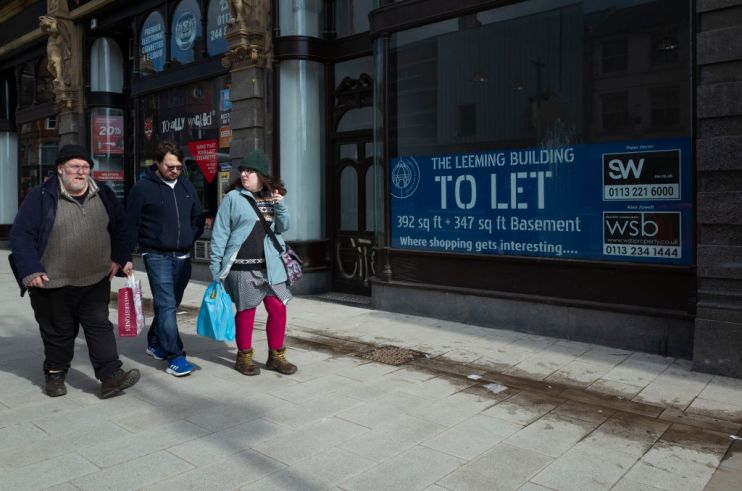Spring statement: Record fall in living standards under current parliament

UK living standards will fall quicker over the course of this parliament than any other since records began, reveals fresh analysis released in the wake of chancellor Rishi Sunak’s spring statement.
The typical non-retired household is forecasted to be two per cent worse off by the time of the next election in 2024, according to the think tank the Resolution Foundation.
“Although incomes are forecast to grow in 2024/25 (aided by the income tax cut) and future years (driven by growing real wages), the outlook over the next few years taken together is very poor,” the organisation said.
The research reinforces a downward trend in living standards since the global financial crisis rocked the UK economy in 2007.
The average household is now expected to have foregone £11,000 in real income growth by 2027 compared to pre-financial crisis trends, according to the Institute for Fiscal Studies.
Sunak announced at this week’s spring statement the threshold at which workers start paying national insurance will rise £3,000 from July, effectively a tax cut.
He also promised to cut the basic rate of income tax by 1p in the pound to 19 per cent by 2024.
Living standards are being eroded by a combination of global factors that are fuelling inflation in the UK and across rich nations.
Russia’s invasion of Ukraine has sent oil and gas prices soaring, raising petrol costs and energy bills.
An ongoing global supply crunch and a gumming up in crucial trade flows triggered by the pandemic has engineered shortages of goods and services, putting upward pressure on prices.
A labour squeeze has also intensified pay pressures.
Fresh figures published by the Office for National Statistics this week revealed inflation in the UK hit a 30-year high of 6.2 per cent. It is expected to peak at somewhere near nine per cent.
However, the cost of living in Europe is running at the same level. In the US, it is even higher, hitting a 40-year high of 7.9 per cent.
Living standards fall when incomes fail to keep up with the rate of price rises.